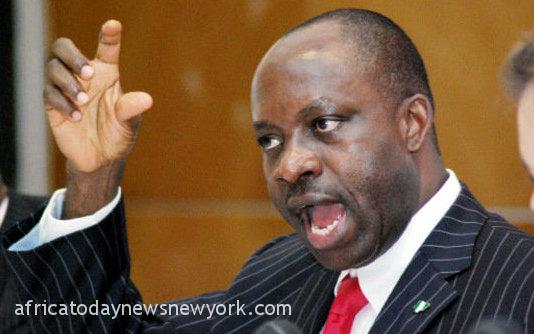Anambra State Governor, Prof. Chukwuma Soludo, has joined the list of those kicking against the retention of the subsidies on petroleum products in Nigeria.
This was even as the Nigerian National Petroleum Corporation, NNPC, Limited revealed that payments for petrol subsidy cost the Federation Account ₦1.217 trillion in the first five months of 2022.
However, Soludo, in his reaction pointed out that fuel subsidy should be charged from the federal government and not subnational states.
He also argued that the subsidy ought to have been removed ‘like yesterday,’ adding that its non-removal could cause the Central Bank of Nigeria, CBN to spill money.
Soludo, who made his intentions known at the launch of the Nigeria Development Update, NDU, by the World Bank group in Abuja yesterday, emphasised that the solutions to Nigeria’s problems were obvious and not far-fetched.
Read Also: Subsidy To Gulp ₦2.5T As Buhari Sends Supplementary Budget
Specifically, he said: ‘Federal government decides that it wants to subsidise Premium Motor Spirit, PMS, why do you have to charge it from the subnational states? You should charge it from the revenue of the federal government.
‘We need to have this conversation, the politics, and structure of the government and so on. We cannot do the same thing over and over again and expect the same result; it’s not going to happen. We’ve had this analysis for a decade, the same analysis and conclusions of what to do.
‘Remove this subsidy like yesterday, this ought to have been removed like yesterday. If we continue with the subsidy, Central Bank will continue to spill money. The solutions are pretty obvious. What we need to do is to be committed to it.’
Meanwhile, the NDU report sighted by Vanguard, disclosed that a higher inflation rate had pushed about 15 million more Nigerians into poverty between the 2020 and 2022, while eight million more Nigerians were in poverty between the 2020 and 2021.
The report noted that the war in Ukraine added to Nigeria’s woes, as inflationary pressures have increased, with inflation projected to reach 15.5 percent by the end of 2022.

